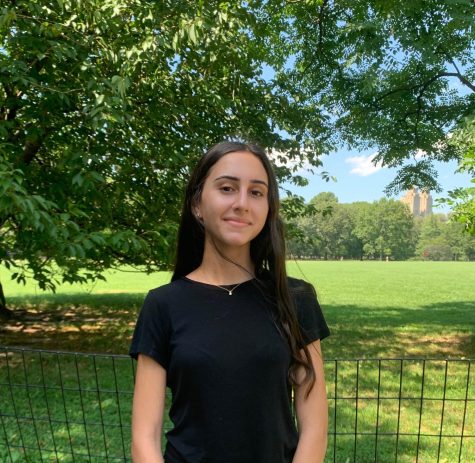Behind the Scenes at SFAC: January Edition
The third Student Faculty Administration Committee (SFAC) meeting took place on January 16th. Many topics discussed in the November meeting were readdressed with updates given by their respective committees.
Clubs/Co-Curricular Activities
The committee readdressed the idea of clubs meeting during school hours to make it easier for more students to attend. The proposal at this meeting was to create a schedule that has a “Club Period.” Instead of B4, a period would be designated for club meetings on a non-rotating day, Monday or Thursday. Each month, three out of four of those periods can be selected for clubs to meet. The one remaining period could be used for other programming, including a monthly advisory (since B4 would not exist). Also, each of these dates would be designated to a specific section of clubs—like Special Interest Clubs (example: Business Investment Club, Language Clubs, and Appropriate Teams). The meeting times of these clubs sometimes overlap with more “demanding” clubs such as Model UN or Model Congress. One problem presented with this approach is what the students who are not part of a club would do with this period. The discussion concluded that the follow up group (the group that is assigned to investigate how to implement suggestions) and the two people who do scheduling for the school should meet to see if the logistics of this suggestion could be worked out.
Student-Teacher Conferences
At the last SFAC meeting, the committee discussed how student-teacher conference day is very hectic, and students often do not get enough time with their teachers. One idea to solve this issue was to have a second day for such meetings. Another suggestion was to have student schedules and a program for the students not meeting with teachers. Another recommendation was to divide the school into two groups: one group to meet with teachers and the other to participate in a program. The groups would switch for the afternoon. The discussion ended with an agreement that giving schedules to students, just like those given to parents, seems doable. Also, perhaps teachers should have office hours so that students can still meet on another day.
Ramaz Atmosphere
The next topic raised was how to enhance ruach at Ramaz. One member stated that Ramaz needs more school spirit. This led to a discussion about which events result in the greatest amounts of spirit to see if the school can try to implement more of these spirited events. The Boys Varsity Basketball game in the Glouberman Los Angeles tournament last November was one instance of wonderful school spirit. A member said, “It was great to see the whole school watching. The competitiveness of the sport kept people interested.” Other events mentioned were the school wide retreats, the Chagigah in Adar, and gradewide Shabbatons. The problem raised was that students sometimes think the event is forced and feel that they are “too cool” to participate. Someone suggested that the G.O. should implement spontaneous events. Maybe the extra B4 period from the suggestion above could be used for those kinds of events. The topic will continue to be explored by a follow up committee. Look out for spontaneous events!
Communication with Faculty
Should students email or use Schoology for public announcements? What are student expectations of response time? Some students prefer email while others like Schoology; it is very dependent on the individual student. A faculty member responded that although she does not like general announcements, like about missing AirPods or club tryouts, she does use Schoology and expects that if she posts an assignment on Schoology with a reasonable amount of time before the deadline, students will complete it. One member said the school should suggest that students turn on their notifications so they don’t miss assignments. Another mentioned that different teachers assign work in different ways, and it is the student’s job to realize which teachers use Schoology. One member mentioned a flaw with the app and the online version of Schoology. The app doesn’t always mention announcements. This must be addressed. Another member stated that his Schoology and emails are linked, so he is constantly checking both and recommended that more students connect them. A follow up group was formed to continue this discussion.
Citizenship reports
What are the goals of citizenship reports? When are citizenship reports usually given? Does the faculty find citizenship reports an effective way to communicate with parents and students? One member clarified the process that is involved with citizenship reports. She explained that when a faculty member finds students who they feel are violating school policies such as dress code, talking at inappropriate times, or disrespecting a teacher, the student is sent to the office and instructed to write out what happened. The reports are emailed to the advisors and Grade Deans. How are they used? One member stated that they are used at certain times, for example, when the school holds elections. Bad reports could cause a student to be disqualified.
It is concerning to students that there is no consistency and often no ramifications of the reports. Many faculty members will not have the students fill out a report, but rather, reprimand the student on the spot. For other teachers it is easier not to get involved, and rather, just send the student to fill out this report. Yet, even with a report, what kinds of punishments are there? Also, if a student is not following certain rules, how can the school change this behavior? Should there be several warnings before a punishment is enforced? In regard to inconsistencies, one student mentioned that she has gotten emails about coming late before finals but never about citizenship reports. The citizenship reports seem to get forgotten. The difference between the old disciplinary reports and the new citizenship reports was also discussed. The citizenship report focuses more on what the student is doing to affect the people around him or her. Also, the decision as to whether parents should get notified when a student is instructed to fill out a citizenship report was addressed. Right now, parents are not notified. A follow up committee was formed to further explore this topic.
New Test Scheduling Policy
The last topic discussed was the experimental test policy. Several problems have arisen from the current testing system: it is difficult to find days to schedule tests, students share test questions with other students in different classes who will take the same exam later in the day, and extra-time students come late to classes they have after their tests. With the new testing system, all the tests for a few specific subjects will be administered at the same time during an AM assembly period. This scheduling will benefit students since they will be taking the test earlier in the day, rather than later on when they are tired. The new policy will benefit teachers as well because all the students will take the exam together, and teachers will not have to worry about students relaying the questions to each other. The faculty is eager to hear how students feel about this new policy. The experiment will begin this semester.
As always, committee members are encouraged to speak to others about any issues of concern. Similarly, students should feel free to alert SFAC members of any topics that need to be addressed. Follow ups and new discussions will take place at the next meeting.

Caitlin Levine loves journalism, is an avid writer, and is thrilled to be an editor-in-chief of The Rampage. Caitlin has actively contributed to The Rampage...



